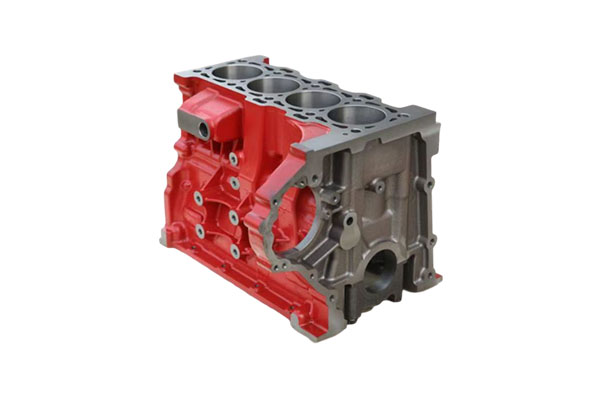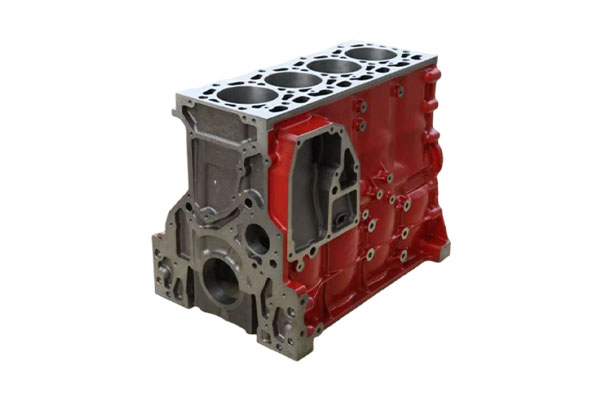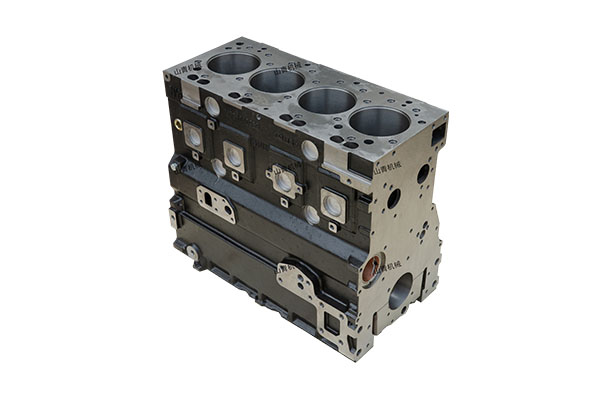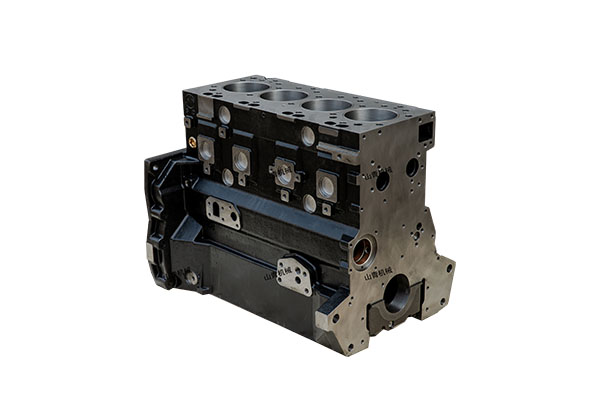How does the material selection of cylinder blocks reflect its advantages?
Release Time : 2025-04-10
As the core component of the engine, the material selection of cylinder blocks is directly related to the performance, life of the engine and the power performance of the whole vehicle. Among the many material options, cast iron and aluminum alloy are the two most common types of cylinder blocks. Their unique performance advantages provide strong support for the application of cylinder blocks in different types of engines.
Cast iron, a traditional and classic material, occupies a pivotal position in the manufacture of cylinder blocks. Cast iron cylinder blocks have become an ideal choice for high pressure and high temperature environments with their excellent strength and rigidity. During the operation of the engine, cylinder blocks need to constantly resist the huge pressure and temperature fluctuations caused by the intense combustion in the combustion chamber. Cast iron materials ensure the stability and durability of cylinder blocks with their excellent mechanical properties. In addition, cast iron cylinder blocks also have good wear resistance and corrosion resistance, and can resist the wear caused by piston movement and the erosion of chemicals such as fuel and coolant for a long time, thereby extending the service life of the engine.
However, with the continuous advancement of automobile technology and the increasing requirements of consumers for vehicle performance, aluminum alloy cylinder blocks have gradually emerged. Compared with cast iron, the biggest advantage of aluminum alloy cylinder blocks is its lightweight characteristics. The density of aluminum alloy is much lower than that of cast iron, which enables aluminum alloy cylinder blocks to significantly reduce the weight of the engine while maintaining sufficient strength. This not only helps to improve the vehicle's handling and fuel economy, but also reduces the vibration and noise of the engine to a certain extent. In addition, aluminum alloy cylinder blocks also have excellent heat dissipation performance, which can dissipate the heat generated by combustion more quickly and maintain the stable operation of the engine, which is especially important for high-performance engines.
In practical applications, the material selection of cylinder blocks is not static, but needs to be comprehensively considered according to the design requirements, usage scenarios and cost of the engine. For example, in high-performance sports cars that pursue extreme performance and lightweight, aluminum alloy cylinder blocks have almost become standard; while in some commercial vehicles or construction machinery that are more sensitive to cost and have low weight requirements, cast iron cylinder blocks have won a wide market with their economy and durability.
It is worth mentioning that with the continuous development and innovation of materials science, some new cylinder block materials have gradually entered people's field of vision. For example, composite cylinder blocks are gradually attracting the attention and research of automobile manufacturers with their unique performance advantages, such as higher strength, lower weight and better heat dissipation performance. However, the application of these new materials still faces challenges in many aspects such as cost and manufacturing process, and requires further research and development and promotion.
The material selection of cylinder blocks is an important link in engine design, which is directly related to the performance, life of the engine and the power performance of the whole vehicle. Cast iron and aluminum alloy are two mainstream cylinder block materials, each with unique advantages and application scenarios. In the future development, with the continuous advancement of materials science and the continuous innovation of automotive technology, the material selection of cylinder blocks will be more diversified and personalized, bringing more possibilities for improving the performance of the engine and the power performance of the whole vehicle.
Cast iron, a traditional and classic material, occupies a pivotal position in the manufacture of cylinder blocks. Cast iron cylinder blocks have become an ideal choice for high pressure and high temperature environments with their excellent strength and rigidity. During the operation of the engine, cylinder blocks need to constantly resist the huge pressure and temperature fluctuations caused by the intense combustion in the combustion chamber. Cast iron materials ensure the stability and durability of cylinder blocks with their excellent mechanical properties. In addition, cast iron cylinder blocks also have good wear resistance and corrosion resistance, and can resist the wear caused by piston movement and the erosion of chemicals such as fuel and coolant for a long time, thereby extending the service life of the engine.
However, with the continuous advancement of automobile technology and the increasing requirements of consumers for vehicle performance, aluminum alloy cylinder blocks have gradually emerged. Compared with cast iron, the biggest advantage of aluminum alloy cylinder blocks is its lightweight characteristics. The density of aluminum alloy is much lower than that of cast iron, which enables aluminum alloy cylinder blocks to significantly reduce the weight of the engine while maintaining sufficient strength. This not only helps to improve the vehicle's handling and fuel economy, but also reduces the vibration and noise of the engine to a certain extent. In addition, aluminum alloy cylinder blocks also have excellent heat dissipation performance, which can dissipate the heat generated by combustion more quickly and maintain the stable operation of the engine, which is especially important for high-performance engines.
In practical applications, the material selection of cylinder blocks is not static, but needs to be comprehensively considered according to the design requirements, usage scenarios and cost of the engine. For example, in high-performance sports cars that pursue extreme performance and lightweight, aluminum alloy cylinder blocks have almost become standard; while in some commercial vehicles or construction machinery that are more sensitive to cost and have low weight requirements, cast iron cylinder blocks have won a wide market with their economy and durability.
It is worth mentioning that with the continuous development and innovation of materials science, some new cylinder block materials have gradually entered people's field of vision. For example, composite cylinder blocks are gradually attracting the attention and research of automobile manufacturers with their unique performance advantages, such as higher strength, lower weight and better heat dissipation performance. However, the application of these new materials still faces challenges in many aspects such as cost and manufacturing process, and requires further research and development and promotion.
The material selection of cylinder blocks is an important link in engine design, which is directly related to the performance, life of the engine and the power performance of the whole vehicle. Cast iron and aluminum alloy are two mainstream cylinder block materials, each with unique advantages and application scenarios. In the future development, with the continuous advancement of materials science and the continuous innovation of automotive technology, the material selection of cylinder blocks will be more diversified and personalized, bringing more possibilities for improving the performance of the engine and the power performance of the whole vehicle.







